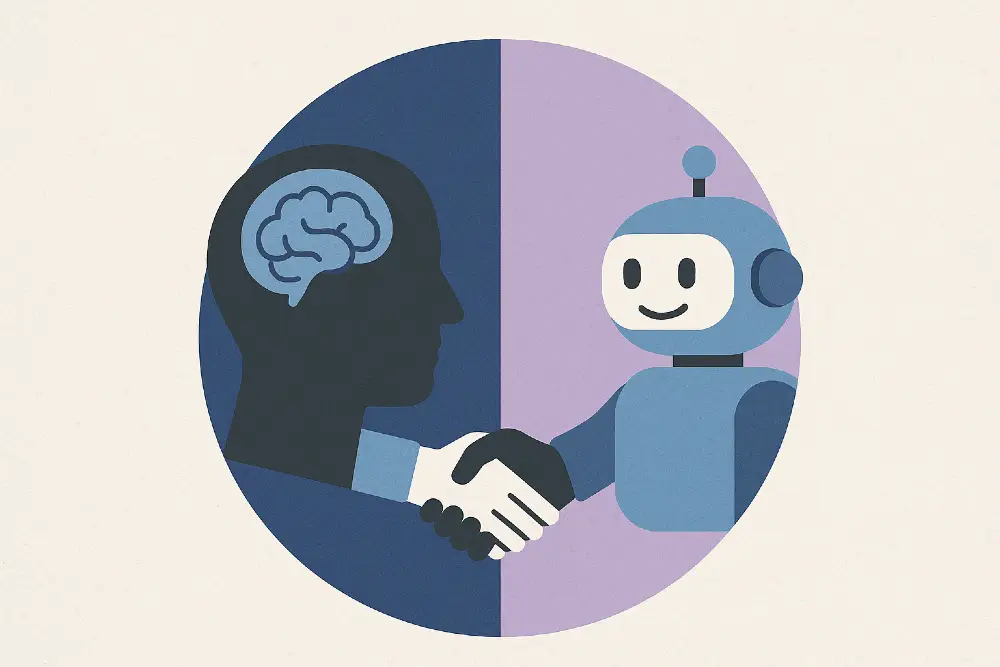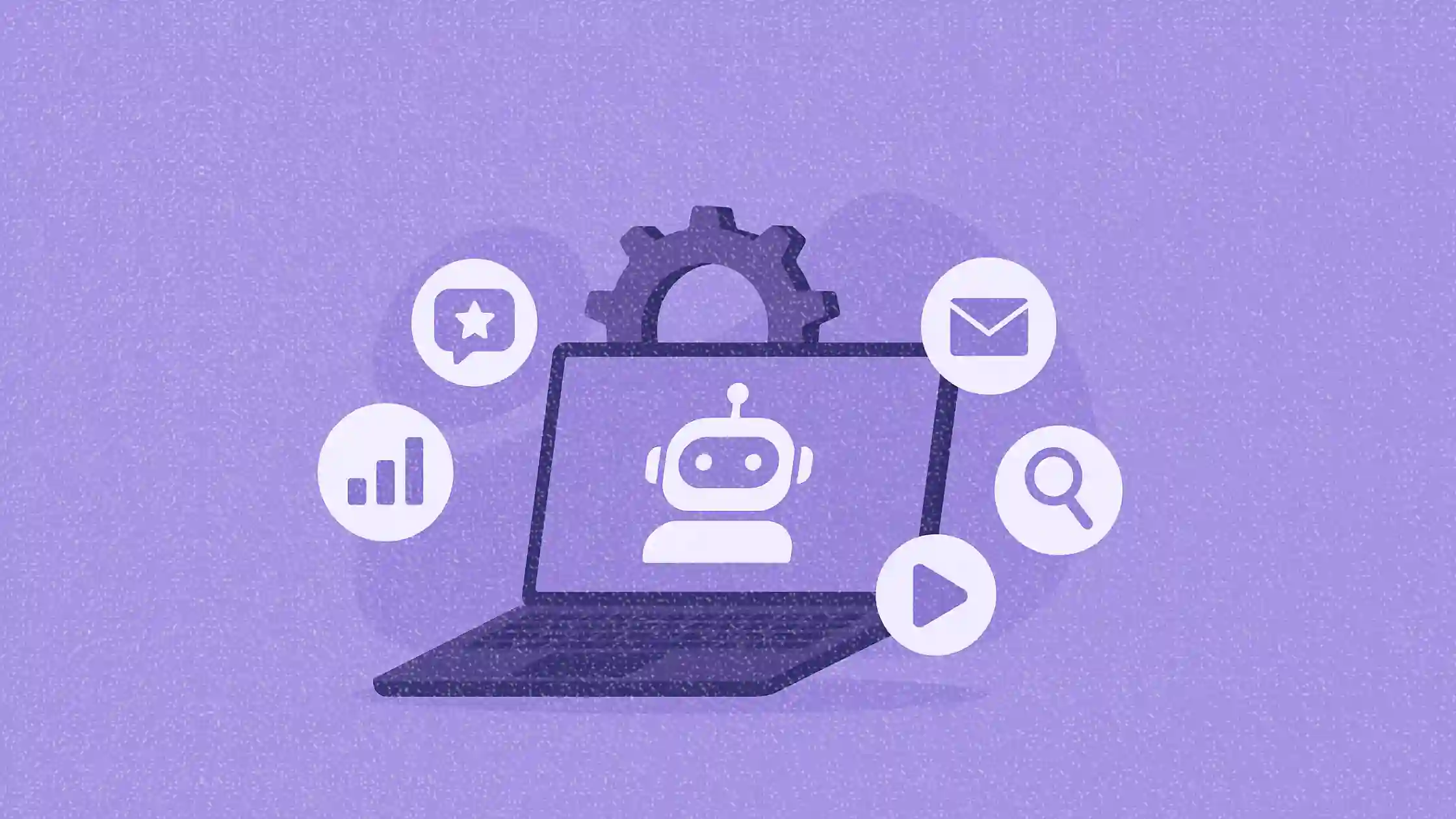Ken Kerrigan on AI in PR: Why human touch still matters
The Bliss Group's Ken Kerrigan explains why AI excels at audience research but falls short on reputation strategy—and what that means for communicators navigating the technology shift.

When AI was initially banned at NYU, Ken Kerrigan watched the controversy unfold from his position as adjunct faculty in the university's Public Relations and Corporate Communications program. Now, more than a decade into his teaching role and after a year of earnest AI experimentation, the PR veteran has developed a nuanced view of where artificial intelligence actually adds value—and where it definitively doesn't.
As Senior Vice President and Co-Lead of the Professional Services Practice at The Bliss Group, Ken brings over three decades of experience spanning roles at Ernst & Young, Weber Shandwick, Hill & Knowlton, and Edelman to one of the industry's most pressing questions: how should communicators integrate AI without losing what makes PR fundamentally effective?
The Bliss Group is a full-service marketing communications firm that has operated in professional services for 47 years, serving clients across Big Law, accounting, management consulting and B2B industry leaders. The agency's proprietary ABCDE framework—Audience, Behavior, Content, Distribution and Evaluation—guides their data-driven approach to storytelling, making Ken's perspective on AI integration particularly relevant.
In this interview, Ken discusses his evolution from viewing AI as potentially threatening to embracing it as a strategic tool, why he believes AI excels at audience identification but may never be ready for reputation strategy, how universities are rethinking AI education, and his surprisingly straightforward advice for communications teams hesitant about adoption.
From "friend or foe" to strategic tool

Ken admits he was among many professionals initially uncertain about AI's role when ChatGPT first debuted. "I think everyone started to play with these shiny new toys when chat gpt first debuted, and we all tried to figure out if the technology was friend or foe," he reflects.
His approach shifted over the past year as he began using AI earnestly—but specifically as a reference and outline tool for narrative development. This focused application has proven particularly valuable in the early stages of strategic planning, where AI helps structure thinking without replacing the creative and strategic judgment that defines effective communications.
At The Bliss Group, this strategic integration has "greatly sharpened the way we go about stakeholder engagement." Ken explains how AI has become powerful for "helping the agency identify key audiences and buyer personas and how they tend to behave," directly enhancing their established ABCDE framework.
But Ken draws a clear line between AI's analytical capabilities and the nuanced work of reputation management. "AI can help identify trends and predict potential risks based on competitive insights and environmental scans, but reputation requires much more than that," he explains. "AI is nowhere near ready to replace the human element that helps shape effective reputation strategies and it may never be."

The crisis communications evolution
Ken's perspective on AI's limitations becomes clearer when discussing crisis communications—an area where he's guided organizations through major challenges throughout his career at global firms. While acknowledging that "data-driven insights have always served as the foundation for any communication strategy, especially during a crisis," he notes a fundamental shift in speed rather than substance.
Where crisis response once relied heavily on overnight opinion research of key stakeholder groups, AI and emerging technologies have made the process "radically faster" without entirely replacing traditional research methods. This acceleration matters in today's media environment, but Ken's emphasis on speed improvements—rather than strategic breakthroughs—reveals his measured view of AI's current capabilities.
The distinction matters because Ken sees reputation work as fundamentally different from the analytical tasks where AI excels. His decades of experience managing communications during major industry challenges at Ernst & Young reinforce his belief that reputation strategy demands human judgment that current AI systems simply cannot replicate.
Teaching the next generation about AI boundaries

Ken's dual role as practitioner and educator at NYU provides unique insight into how the communications industry should prepare for AI integration. The university's evolution from initially banning AI to embracing it as a research and first-draft tool mirrors broader institutional uncertainty about the technology's appropriate role.
His classroom approach is deliberately balanced: "From the first day of each semester we make it clear that it can't replace critical thinking and the tone of voice needed for quality public relations writing." This educational philosophy reflects a broader challenge facing the industry—how to leverage AI's capabilities without losing the strategic thinking and voice that distinguish effective communications professionals.
The academic environment serves as a testing ground for professional applications, where students learn to use AI for research and initial content creation while developing the human skills that Ken considers irreplaceable. This preparation becomes crucial as graduates enter a workplace where AI adoption is accelerating but human judgment remains essential for strategic success.

The people-driven business reality
Despite AI's expanding capabilities and the industry's rush to adopt new technologies, Ken maintains a fundamental belief about public relations: "PR is a people-driven business and always has been. AI will not change that."
This perspective reflects his experience across multiple decades and agency environments, where relationship building, strategic positioning, and reputation management have consistently required human insight. Working primarily in professional services—sectors dealing with complex regulatory environments, sophisticated clients, and reputation-sensitive situations—reinforces his view that algorithmic responses often prove inadequate.
Ken's confidence in this assessment stems from practical experience rather than technological resistance. His work co-leading The Bliss Group's Professional Services Practice involves clients where stakes are high and relationships matter more than efficiency gains. In these contexts, the "human element that helps shape effective reputation strategies" becomes not just valuable but essential.
Practical advice: embrace experimentation
For communications professionals still hesitant about AI adoption, Ken offers surprisingly straightforward guidance: "Use it, leverage, play with it. Have fun and don't be threatened."
This advice reflects his own journey from uncertainty to strategic integration. Rather than prescribing specific tools or techniques, he advocates for an experimental approach that allows communicators to discover where AI adds genuine value to their work.
The key insight from Ken's experience is understanding AI as an enhancement tool rather than a replacement for strategic thinking. His successful integration focuses on specific use cases—audience research, competitive intelligence, initial content structuring—while maintaining human oversight for strategic decisions and relationship management.
This balanced approach acknowledges AI's growing capabilities while preserving the relationship-building core that Ken considers fundamental to communications success. For practitioners willing to experiment thoughtfully, this evolution represents opportunity rather than threat.




